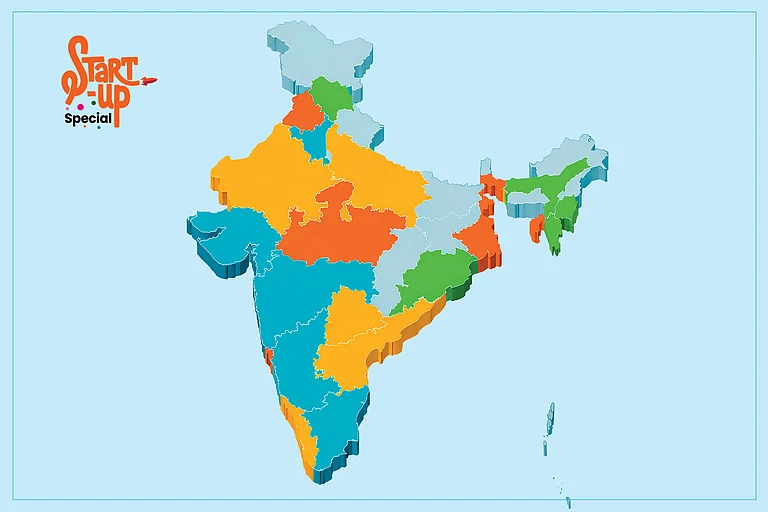India, the world’s third-largest startup hub, now has 157,066 startups officially recognised by the government as of December 25. Of the government-backed start-ups, over 73,000 start-ups have at least one-woman director that have been recognised under the Startup India Initiative, said ministry of commerce and industry in a statement.
Highlighting the pivotal role played by the start-ups in India's economic development, it noted that start-ups have proven out be one of the major employment generators, creating over 1.6 million jobs across the country.
"Rural-focused startups and social enterprises are addressing critical gaps in healthcare, education, and agriculture, improving the quality of life for millions," the ministry said.
Increasing Global Footprint
The ministry stated that Indian start-ups have gone beyond solving the local issues and are now increasing the their footprint globally. It also lauded companies like BYJU’S, Zomato, Ola and Nykaa that have expanded their operations worldwide.
"The success of Indian-origin startups in Silicon Valley further highlights the country’s global influence," said the ministry.
"India’s leadership in affordable technology solutions, such as UPI and Aadhaar-enabled services, is inspiring similar innovations globally. Additionally, India’s unicorns are outpacing global peers in valuation growth, proving that the ecosystem’s foundation is robust and scalable," it added.
It further reiterated that the country's journey toward becoming the world’s leading startup ecosystem is driven by a combination of demographic, economic, and policy factors. It highlighted that with a young, educated population, a growing middle class, and an increasing penetration of digital technologies, the country is poised for exponential growth.
Paradigm Shift in India's Entrepreneurial Spirit
As per the ministry, India's entrepreneurial spirit undergone a paradigm shift in the last decade with Bengaluru, Hyderabad, Mumbai, and Delhi-NCR becoming major hub of innovation. Start-ups growth in sectors like fintech, edtech, health-tech, and e-commerce had been significant due to widespread availability of affordable internet coupled with a young and dynamic workforce.
According to the "Indian Startup Ecosystem Report" by Startup India, India’s startups have leveraged emerging technologies such as artificial intelligence (AI), blockchain, and IoT to solve local and global problems.
Initiatives for Star-up Growth
To support the growth of start-ups in the country, the government launched various initiatives including the flagship Startup India program in 2016. Except for 157,066 recognised start-ups, the portal has 759,303 registered users.
This flagship has facilitated 'Ease of Doing Business' through simplified compliance, self-certification, and single-window clearances; tax exemptions for three consecutive financial years; allocated Rs 10,000 crore through Fund of Funds for Startups (FFS); and tailored policies for industries including biotechnology, agriculture, and renewable energy to boost industrial growth.
With the help of platforms like Bharat Startup Knowledge Access Registry (BHASKAR), collaboration was centralise, streamlined, and enhanced among key stakeholders within the entrepreneurial ecosystem, including startups, investors, mentors, service providers, and government bodies.
In addition, initiatives such as the Atal Innovation Mission (AIM) and the National Initiative for Developing and Harnessing Innovations (NIDHI) provide infrastructure and financial support to innovators.
Furthermore, Startup Accelerator of MeitY for Product Innovation, Development, and Growth (SAMRIDH) scheme launched in 2021, aims to support 300 software product startups over four years with an outlay of Rs 99 crore, providing funding up to Rs 40 lakh per startup through accelerators to scale their businesses.
































